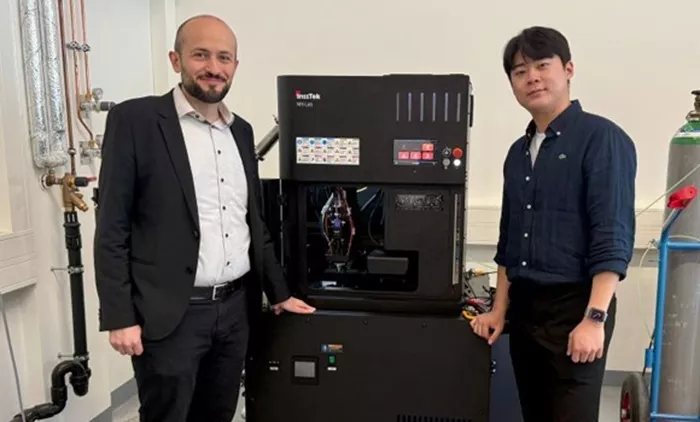InssTek, a South Korean company based in Daejeon, has installed one of its MX-Lab Additive Manufacturing machines at the University of Wuppertal in Germany. This is one of the first installations of this kind in the country.
The MX-Lab machine uses Directed Energy Deposition (DED) technology with a laser. It is compact and designed for laboratory use. It features a built-in Clogged Vibration Method (CVM) powder feeding system. This system ensures a steady and adjustable feed rate for the metal powders used in the manufacturing process.
At the University of Wuppertal, the machine includes a five-hopper powder feeder. This setup allows researchers to control the mixture of materials with high precision. It is especially useful for creating gradient materials and developing new metal alloys. The system also includes user-friendly software that lets researchers produce alloy samples without needing advanced CAD tools.
One of the university’s first research projects using the MX-Lab will support work in the DFG Collaborative Research Center SFB/TRR 270. This project focuses on the study and development of magnetic materials.

